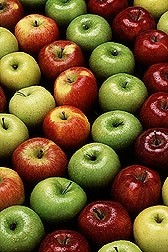Unhealthy snacking habits start early, Nestlé research finds

The results of the Nestlé Feeding Infants and Toddlers Study (FITS), carried out by non-partisan research organization Mathematica Policy Research, were presented at The Obesity Society’s annual scientific meeting in Orlando this week.
Global head of Nutrition Science, Baby Food at Nestlé Nutrition Dr. Kathleen Reidy said: “We’re seeing poor eating habits starting early in life, and they mirror those of older children and adults. It’s important to establish the foundation for healthy diets early in life when eating habits and preferences are being formed.”
The survey looked at the eating patterns of more than 3,200 babies and toddlers aged zero to four years across the US on a given day, and found that toddlers aged 12 months and older consumed a third of their daily calories from snacking between meals.
The most popular snacks were candy, crackers and cookies, with snacks tending to become less nutritious with age, the survey found.
Nestlé suggested that parents might consider offering more nutritious snacks, such as vegetables, low fat yogurt, and whole grain foods, and think of them as ‘mini-meals’.
Medical director at Nestlé Nutrition Dr. Jose Saavedra said: “Parents need consistent messages about how to feed young children in a healthy way. If we can help educate parents on the big impact of relatively simple dietary changes, we may be able to help prevent obesity and chronic disease in our children.”
According to figures from the Centers for Disease Control and Prevention (CDC), 10.4% of American preschool children aged 2-4 are obese, rising to 19.6% among those aged 6-11.
Among other results, the Nestlé survey found that dietary patterns low in fruits and vegetables and high in sweets and saturated fats began to develop between the ages of 12 months and 24 months, and this pattern tended to be established by 24 months, continuing through preschool years.
By the age of 4, fruits and vegetables accounted for about 5% of calories on average, with more than 15% of calories coming from sweets. In addition, three-quarters of preschoolers were consuming too much saturated fat, the survey found.
The first FITS study was carried out in 2002, and was expanded in 2008. It has looked at the evolution of preschool children’s diets, including sources of calories, key nutrients and snacking patterns.









